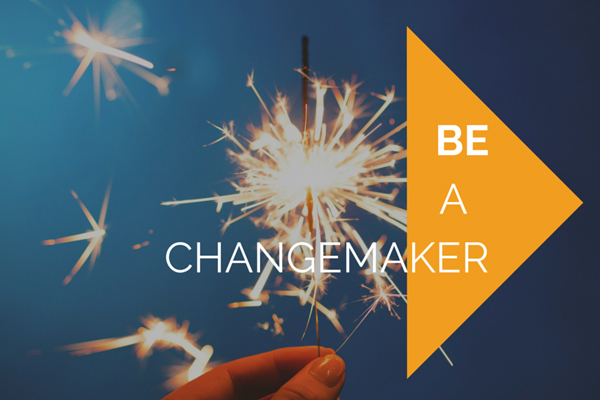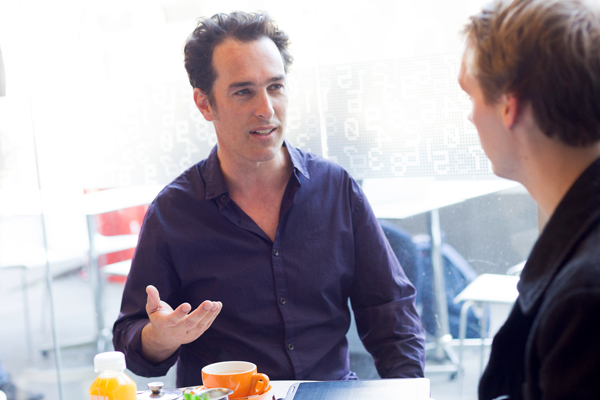Looking to start your own business and wondering how to make a difference? If you want to combine your CSR values and your work life, Social Entrepreneurship may be the pathway for you.
Why Social Entrepreneurship?
Social entrepreneurship is a growing trend, and it’s hardly surprising, according to Dr Ben Neville, Senior Lecturer (Management and Marketing) at Melbourne Business School (MBS), and Academic Director of Compass, the Melbourne Accelerator Program (MAP)’s Impact Entrepreneurship Program.
As he points out, often, businesses, governments and charities cannot independently solve or impact larger societal issues. Trends show that as a group, Millenials tend to have a greater sense of social good in a work context, than older generations, and want to merge social responsibility with their careers.
Millenials have grown up with entrepreneurial success stories - from Bill Gates, to Sheryl Sandberg and Mike Cannon-Brookes. Now we are seeing the emergence of entrepreneurs focusing on impact such as Muhammad Yunas and Elon Musk, who are influencing and inspiring even more people in the social impact space.
Where does it all begin?
Beyond the obvious – an idea! – how do you know what you need to get started as a social entrepreneur and if this is really something that you want to, or can, achieve? For many, taking the first step of their entrepreneurship adventure is sometimes so daunting they give up before they even begin. What if you do want to build up your social impact venture? Where should you start? This is where Social Velocity can help. It is a competitive-entry 6-month program offered by Compass. It’s free for successful candidates, and will help you get ready to apply for MAP or other accelerators.

We sat down with Dr Ben Neville to learn more about social entrepreneurship:
Do you think ventures with a social impact focus are able to gain popularity more easily than those without?
Certainly the understanding is that the social aspect will get your product or service a trial and a positive framing leading into the experience, but unless your product or service is comparable in the marketplace they won’t stick with you. You can’t do good and sell a bad product and expect to succeed. As obvious as that sounds, there are plenty of people with an idea for a social enterprise who think that people will buy their product or service simply because of the social good that they intend to do.
What are some great examples of social entrepreneurship ventures?
The two most successful examples in Australia are The Big Issue and the Thankyou Group with Thankyou Water. (Related: Thankyou Group Co-founder Daniel Flynn on turning ideas into reality.). They're at different ends of the spectrum with The Big Issue integrating market dynamics right into the core of their employment model, while Thankyou operate normally in the market and then tip 100% of their profits into social causes. Other well-known examples in Melbourne include WhoGivesACrap, Streat , Ceres Fair Food and SecondBite. We also often forget the Op Shops, Tip Shops and firms like InfoXchange use technology to drive social justice.
Why does the world need more of these ventures?
We have some massive, wicked problems that aren't being fixed by the old players with the old models. We need new people with new ideas that can disrupt the status quo and show that there are other more socially beneficial models. I don't want to oversell social enterprise, but it's an important part of the solution. It can bring in some of the most talented young people, rather than them joining profit-focused corporations with less obvious emphasis on creating social value.
 Dr Ben Neville
Dr Ben Neville
Why did Compass decide to launch the Social Velocity program?
We engaged all the other stakeholders in the Melbourne social enterprise world (who are also members of our Social Council) and realised that there is a clear gap at the beginning of the social entrepreneurship pathway. We need to help those with a social enterprise innovation to develop the idea to enable them to successfully apply to one of the other accelerator programs that already exist, such as MAP's Startup Accelerator, Social Trader's Crunch, Two Feet, YGAP’s Spark* or one10. These accelerators are pretty competitive to get into and need a convincing business model and some sort of evidence of traction in the market. We want to help them with that.
What kind of learning journey can a participant expect?
We hope that those who do it will go from having a bit of an idea for something and a desire to do some good in the world to be fully on the path of being a social entrepreneur. By the end of the program they will have made important steps towards developing their idea and minimum viable product (MVP) or prototype, a base level of market research and evidence to support their model, invaluable networks and an understanding of the different players in the Melbourne scene. Most importantly, Social Velocity participants will graduate from the program with a clearly defined business model and a pitch that they can use to take to others and open doors for the next stage in their journey.
Dr Ben Neville teaches a Masters level Social Entrepreneurship subject at MBS. MBS supports social and environmentally focused business, including subjects on business and finance ethics, sustainable business and triple bottom line reporting, as well as social entrepreneurship.